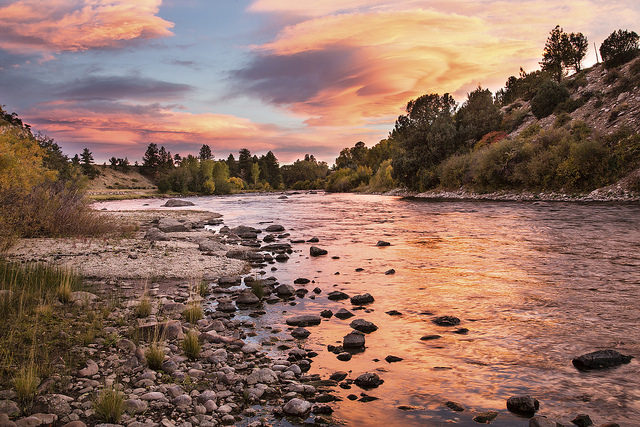LULAC Asks Congress to Save Land and Water Conservation Fund

Sometimes it’s easy to take things for granted. We may spend a Saturday with our families at a soccer game or cookout in a park, not always thinking about the peaceful setting we are in or how it came to be set aside for the public to use and enjoy. Same goes for other outdoor activities like taking our children fishing or camping on the weekends. The memories of those times last forever, but what we often forget are the magical public places we all share that make these memories possible.
Imagine how hard it would be to break away from the stress of day-to-day life without the public parks and lands where we can escape to with family and friends. These, too, are the places where our children can enjoy safe, healthy exercise and outdoor recreational opportunities.
[pullquote]… our nation is about to lose a critical program that helped pay for many of the parks, ball fields and public lands we all enjoy if it is not renewed before September 30th.[/pullquote]Sadly, our nation is about to lose a critical program that helped pay for many of the parks, ball fields and public lands we all enjoy if it is not renewed before September 30th. The Land and Water Conservation Fund was created by Congress in 1965, and over the past 50 years, has had a hand in the creation and enhancement of community and state parks and playgrounds, as well as national parks and monuments in every state and nearly every county.
During the last 50 years, the Land and Water Conservation Fund has provided matching grants to more than 41,000 state and local park projects, as well as protecting clean water supplies and wildlife habitat.
[tweet_dis]The Land the Water Conservation Fund has played an important role in preserving areas important to our shared culture and history as Latinos. [/tweet_dis]Some examples are Roberto Clemente State Park in New York and the Organ Mountains-Desert Peaks National Monument and El Camino Real de Tierra Adentro National Historic Trail in New Mexico. These places help tell the Latino story and educate all Americans that the Latino and Hispano culture are intimately intertwined with the American experience.Another popular element of the Land the Water Conservation Fund is that it uses off-shore oil and gas drilling royalties instead of taxpayer dollars. Thus, the fund has contributed to all of these parks and conservation efforts without using a single dime from any of us.
[pullquote]The Land and Water Conservation Fund has played an important role in preserving areas important to our shared culture and history as Latinos.[/pullquote]As the national voice for all Americans of Hispano/Latino descent, the League of United Latin American Citizens (LULAC), on July 11 at our annual national convention, resolved unanimously to urge Congress to reauthorize and fully fund the Land and Water Conservation Fund because of the important contributions it makes to our nation’s and the Latino community’s health, well-being, economic opportunity and to providing access to our nation’s natural treasures.
As Congresswoman Linda Sánchez, Chair of the Congressional Hispanic Caucus, said recently: “Las costumbres de nuestras familias ayudan al medio ambiente. Tenemos una responsabilidad de proteger el planeta. ¡Únete a estos esfuerzos hoy!”
So, as we approach the sunset of this great program, LULAC calls on Congress to not only preserve the Land and Water Conservation Fund for our children and grandchildren, but to also cease diverting this critical park funding to other purposes. Since 1965, only twice has the program been fully funded to preserve our country’s precious natural and cultural resources and improve access to the outdoors and provide equitable recreational opportunities in urban and rural communities.
We are united in our call for our national leaders to do the right thing so that future generations of all Americans can enjoy the benefits of the Land and Water Conservation Fund.
Brent Wilkes is the National Executive Director of the League of United Latin American Citizens
[Photo by Bureau of Land Management/Flickr]

